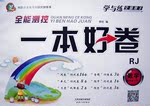题目内容
No one except my parents _____anything about it.
|
A.know |
B.knows |
C.is knowing |
D.have known |
【答案】
B
【解析】略

练习册系列答案
 全能测控一本好卷系列答案
全能测控一本好卷系列答案
相关题目
Health care in remote mountainous areas is very limited as there are no doctors or nurses in the villages------no one has the __________ to pay them. This way sick people will __________ die.
| A.means, eventually | B.ways, mysteriously |
| C.methods, gradually | D.approaches, unfortunately |
No one in the department but Tom and I that the director is going to resign.
| A.knows | B.know | C.have known | D.am to know |